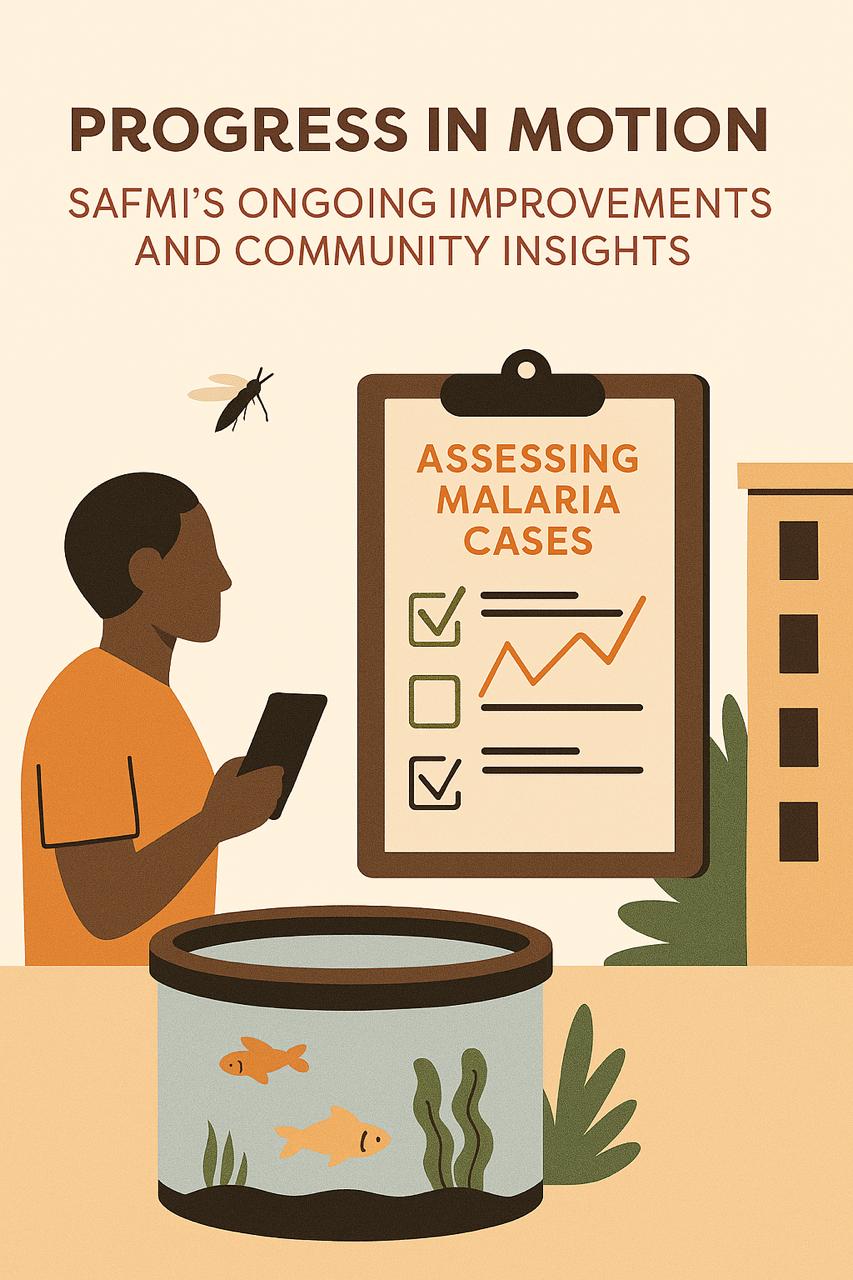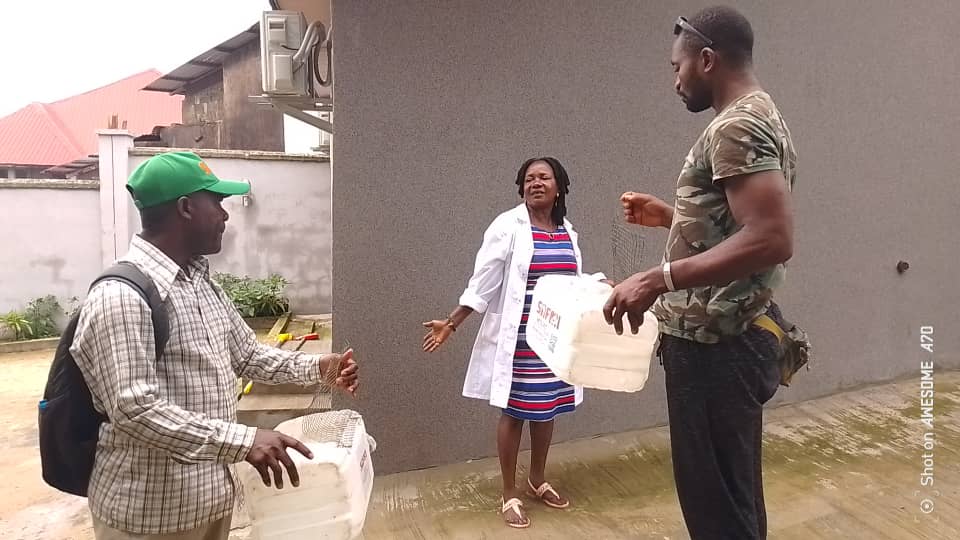In a bold step toward curbing the spread of malaria, the Save Africa From Malaria Infection (SAFMI) Foundation has successfully distributed more than 200 mosquito fish ponds to health centres across Freetown. The distribution drive, conducted from January 22nd to January 25th, 2025, reached health centres in the eastern, central, and western parts of the city. The initiative, led by SAFMI’s Country Ambassador, Alhaji Dauda Musa Bangura, on behalf of CEO Mr. Artem Volchenko, aims to reduce mosquito populations using a sustainable and environmentally friendly approach. By introducing Gambusia affinis, or mosquito fish, into ponds located in stagnant water areas, the project effectively prevents mosquito breeding. These fish are known for their ability to consume mosquito larvae, thereby targeting the disease at its source. During the distribution, Alhaji Dauda Musa Bangura highlighted the ongoing threat malaria poses to Sierra Leone, particularly to vulnerable groups such as children and pregnant women. “Malaria remains one of the deadliest diseases in Sierra Leone. We believe that prevention is better than cure. By using biological control methods like mosquito fish, we can significantly reduce mosquito populations without relying heavily on insecticides, which may have adverse environmental effects,” he explained. The initiative began in the eastern regions of Freetown, where health centres, for instance, Lumley Government Hospital, Wilberforce Health Centre, Jenneh Wright Hospital and more than ten other, have received mosquito fish ponds for placement in high-risk stagnant water areas. The effort then expanded to central and western parts of the city, ensuring the project’s reach across multiple communities. Health workers and community leaders have praised SAFMI’s intervention as a significant step in the fight against malaria. “This is a commendable initiative that will help us in our efforts to protect people from malaria,” remarked a nurse at one of the benefiting health centres. “Mosquito fish are a natural way to control mosquito breeding, and if managed properly, they can have a lasting impact.” Residents of the affected communities also expressed their gratitude, citing the project as a much-needed relief from the burden of malaria. With the disease remaining one of the leading causes of illness and death in Sierra Leone, the mosquito fish pond initiative provides a complementary solution to existing measures such as insecticide-treated bed nets, indoor spraying, and public health awareness campaigns. With the support of the aforementioned hospitals, SAFMI has pledged to monitor the effectiveness of the fish ponds continuously and provide ongoing support to ensure the project’s success. The organization has also called on government bodies, NGOs, and other stakeholders to collaborate in strengthening efforts to combat malaria across Sierra Leone. This innovative approach demonstrates SAFMI’s commitment to using sustainable, impactful methods to create healthier, safer communities.


.png)

